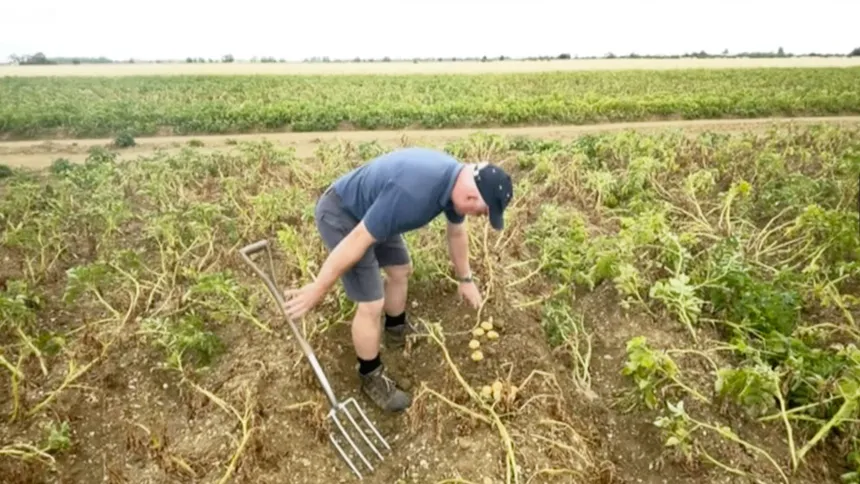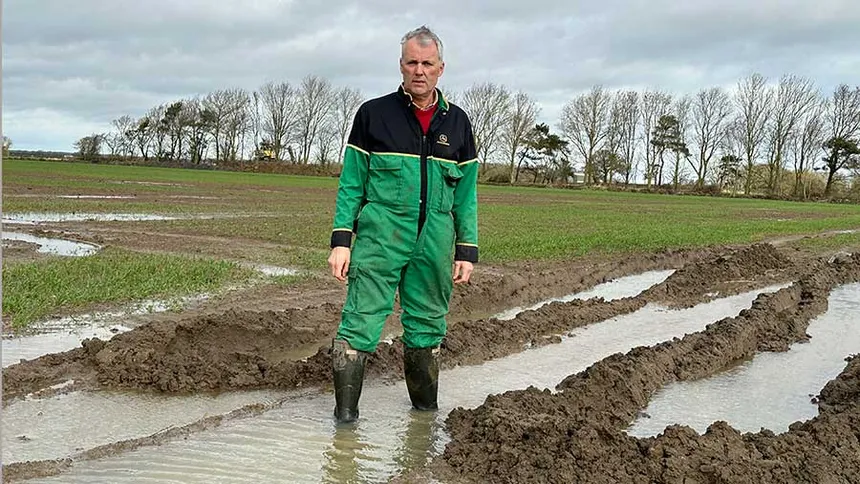The recent devastating floods across the UK have left farmers reeling, with entire fields submerged in water and crops ruined. Storm Babet’s wrath has caused widespread destruction, leaving at least seven people dead and hundreds more homeless. The Environment Agency estimates that 1,250 properties in England have been flooded, while around 30,000 properties have required flood protection.
Farmers are now bracing themselves for the worst, with the Soil Association’s farming adviser, Jerry Alford, warning that the flooding will have a devastating impact on winter cereals and make spring cropping more likely with inevitable lower yields. Those who have already invested in planting this year will be facing catastrophic losses at a time of real crisis, Alford said.
The farmers are not alone in their struggle, with the National Farmers’ Union (NFU) sharing their concerns. The NFU deputy president, Tom Bradshaw, said that hundreds of acres of productive farmland are now under water, making it inaccessible. Many of their members are struggling to get crops out of the ground from this season, or are yet to plant autumn crops for next year. Those crops that are already in the ground are likely to rot, seriously compromising the output and profitability of next year’s harvest.
The NFU is calling for the government to put in place a water strategy to prevent such losses. Bradshaw emphasized that farming is on the frontline of climate change and the sector is experiencing volatility and severe weather events more often. A long-term plan to improve how the nation’s food production is valued and managed during times of flood and drought is urgently needed, the NFU said.

The Met Office has reported that 13 areas had broken their daily rainfall records for October last week, including sites in Suffolk, South Yorkshire, and Lincolnshire. Last year, farmers faced turmoil due to an extended drought and extreme heat, which caused crop losses, water shortages, and effects on planting and harvesting.
As the country continues to grapple with the aftermath of the floods, it is clear that the agricultural sector is being knocked off balance. The Defra spokesperson acknowledged the impact of the flooding on farmers and said that they are working closely with the Environment Agency to monitor the situation and provide support. However, the NFU remains sceptical, calling for tangible action to address the issue.
With the effects of flooding expected to continue, it remains to be seen how the agricultural sector will recover from this devastating blow. One thing is certain, however – the urgency to address the root cause of climate change and develop a comprehensive strategy to mitigate its impact on food production cannot be overstated.

